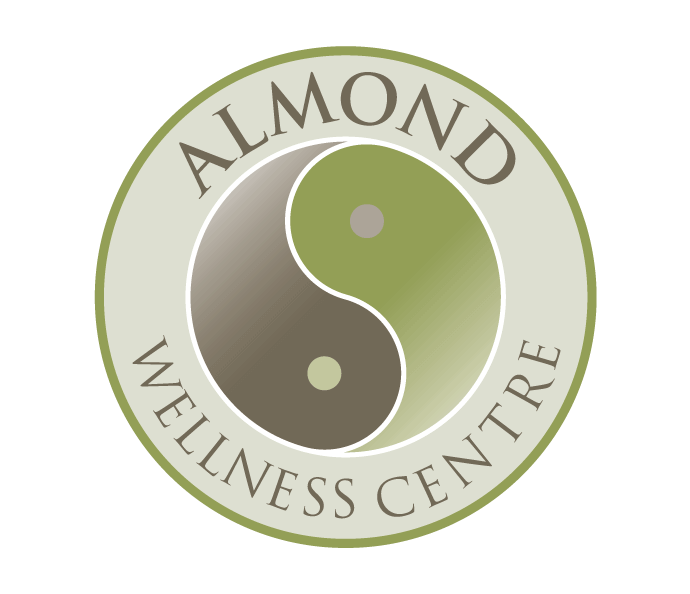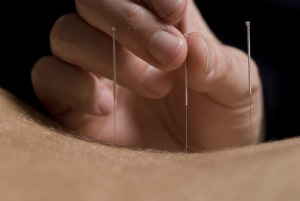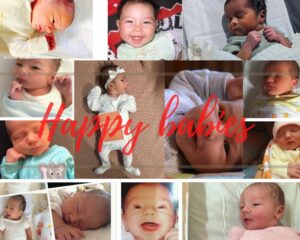Researches Acupuncture Fertility IVF Support
Note: Aphra may not accept these research as evidence. You should consult your treating practitioners about how acupuncture may be able to help you.
Reviews of Acupuncture Chinese medicine for IVF Support
The effects of acupuncture on pregnancy outcomes of in vitro fertilization: a systematic review and meta-analysis.
BMC Complement Altern Med. 2019 Jun 14;19(1):131.
Authors conclusions:
Our analysis finds a benefit of acupuncture for IVF outcomes in women with a history of unsuccessful IVF attempt, and number of acupuncture treatments is a potential influential factor. Given the poor reporting and methodological flaws of existing studies, studies with larger scales and better methodologies are needed to verify these findings.
https://www.ncbi.nlm.nih.gov/pubmed/31200701
Impact of whole systems traditional Chinese medicine on in-vitro fertilization outcomes
Reproductive BioMedicine Online (2015) 30, 602–612
In this retrospective cohort study, 1231 IVF patient records were reviewed to assess the effect of adjuvant WS-TCM on IVF outcomes compared among three groups:
IVF with no additional treatment;
IVF and elective acupuncture on day of embryo transfer; or
IVF and elective WS-TCM.
The primary outcome was live birth.
Of 1069 non-donor cycles, WS-TCM was associated with greater odds of live birth compared with IVF alone or embryo transfer with acupuncture only.
Of 162 donor cycles, WS-TCM was associated with increased live births compared with all groups (odds Ratio [OR] 3.72; 95% CI 1.05 to 13.24, unadjusted) or embryo transfer with acupuncture only (OR 4.09; 95% CI: 1.02 to 16.38, unadjusted).
Overall, IVF with adjuvant WS-TCM (Whole Systems Traditional Chinese Medicine) was associated with greater odds of live birth in donor and non-donor cycles.
These results should be taken cautiously as more rigorous research is needed.
https://www.rbmojournal.com/article/S1472-6483(15)00092-9/pdf
Effects of Chinese herbs combined with in vitro fertilization and embryo transplantation on infertility: a clinical randomized controlled trial.
J Tradit Chin Med. 2014 Jun;34(3):267-73.
CONCLUSION:
Our findings indicate that Chinese herbs increase endometrial thickness, improve the quality of fertility and embryo, and promote embryonic nidation, thus enhancing the success rate of in vitro fertilization/intracytoplasmic sperm injection-embryo transplantation cycle. Using Chinese herbs improves the outcomes and safety of assisted reproductive technologies.
https://www.ncbi.nlm.nih.gov/pubmed/24992752
Chinese herbal medicine for infertility
Chinese herbal medicine for female infertility: An updated meta-analysis
Complement Ther Med. 2015 Feb;23(1):116-28.
Forty RCTs involving 4247 women with infertility were included in this systematic review.
Author’s conclusions:
Our review suggests that management of female infertility with Chinese herbal medicine can improve pregnancy rates 2-fold within a 3–6 month period compared with Western medical fertility drug therapy.
In addition, fertility indicators such as ovulation rates, cervical mucus score, biphasic basal body temperature, and appropriate thickness of the endometrial lining were positively influenced by CHM therapy, indicating an ameliorating physiological effect conducive for a viable pregnancy.
https://www.sciencedirect.com/science/article/pii/S0965229914001915
Ovarian reserve
Traditional Chinese Medicine for Diminished Ovarian Reserve: A Systematic Review and Meta-analysis
Chinese Herbal Medicines, Volume 6, Issue 2, May 2014, Pages 93-102
Seventeen randomized controlled trials involving 1174 patients were included. Meta-analysis indicated that TCM was superior to Western medicine (WM) in reducing basal serum FSH level, and the effect was more obvious two months after the last, and increasing antral follicle count. The review also revealed the positive role of CMM as an adjuvant to IVF-ET in improving pregnancy rate.
Author’s conclusions:
TCM, with its unique way of replenishing the kidney, may provide an effective and safe alternative therapy to patients with DOR.
https://www.sciencedirect.com/science/article/pii/S1674638414600149
Dysfunction of hypothalamic-pituitary-ovarian axis
Acupuncture normalizes dysfunction of hypothalamic-pituitary-ovarian axis.
https://www.ncbi.nlm.nih.gov/pubmed/9330669
PCOS research
Acupuncture for polycystic ovarian syndrome: A systematic review and meta-analysis
Medicine: June 2017 – Volume 96 – Issue 23 – p e7066
We found a low level of evidence that acupuncture is more likely to improve ovulation rate (MD 0.35, 95% CI: 0.14–0.56) and menstruation rate (MD 0.50, 95% CI: 0.32–0.68) compared with no acupuncture. We found statistically significant pooled benefits of acupuncture treatment as an adjunct to medication in luteinizing hormone (LH), LH/follicular stimulating hormone (FSH) ratio, testosterone, fasting insulin, and pregnancy rates, but the level of evidence was low/very low.
https://journals.lww.com/md-journal/fulltext/2017/06090/Acupuncture_for_polycystic_ovarian_syndrome__A.18.aspx
Clinical therapeutic effects of acupuncture combined with Chinese herbal medicine on infertility of polycystic ovary syndrome in the patients with ovulation induction with letrozole
Zhongguo Zhen Jiu. 2018 Jan 12;38(1):27-32.
Author’s conclusions:
For PCOS infertility patients receiving ovulation induction with letrozole, the combined treatment with the Chinese herbal formula for regulating menstruation and removing phlegm and EA remarkably improves the menstrual cycle, reduces body weight and the levels of LH, LH/FSH, T and AMH, improves ovulation and pregnancy rates. This therapy does not induce adverse reactions and the therapeutic effects are better than the simple application of letrozole or the combined therapy of letrozole and Chinese herbal medicine.
https://www.ncbi.nlm.nih.gov/pubmed/29354933
Endometrial receptivity
Acupuncture in improving endometrial receptivity: a systematic review and meta-analysis
BMC Complementary and Alternative Medicinevolume 19, Article number: 61 (2019)
Author’s conclusion:
The efficacy and safety of acupuncture on key outcomes in women with low ER is statistically significant, but the level of most evidence was very low or low. More large-scale, long-term RCTs with rigorous methodologies are needed.
Women’s Sex Hormone
A Literature Review of Women’s Sex Hormone Changes by Acupuncture Treatment: Analysis of Human and Animal Studies.
Evid Based Complement Alternat Med. 2018 Nov 15;2018:3752723
Acupuncture articles including analysis of sex hormones were searched in electronic databases from inception to June 2018. The methodological quality was assessed using modified CAMRADES tool. A total of 23 articles were selected and analyzed.
In the results, overall studies showed that acupuncture increases estrogen, especially estradiol, progesterone, prolactin, and other hormones. Estradiol level was increased in most of studies except 3 studies which resulted in decreased level or not meaningful change. Two studies showed increase of FSH and LH whereas it was decreased in other studies. Other hormones were mostly increased by acupuncture.
CONCLUSION:
This study possibly indicates that acupuncture changes sex hormone in various gynecological conditions in women.
Male infertility sperm quality
The Therapeutic Effects of Traditional Chinese Medicine for Poor Semen Quality in Infertile Males
J Clin Med. 2018 Sep; 7(9): 239.
To further understand the effects of TCM on semen quality, we retrospectively enrolled patients with male infertility and poor semen quality at the Tainan Municipal Hospital in Taiwan between 2013 and 2016. Semen quality analysis in accordance with the WHO criteria is an essential step in the evaluation of male fertility status. Associations between the semen parameters and body mass index, smoking status, alcohol use, duration of infertility, and age were also analyzed.
A total of 126 male infertility patients with abnormal semen analysis were included in this study: 50 TCM users and 13 TCM non-users. The basic characteristics of the two groups were not significantly different.
TCM users account for 92.5% of the total semen improvement subjects.
In conclusion, TCM supplementation may have a beneficial role as improving sperm quality for infertility patients.
Effect of garlic (Allium sativum) on male fertility: a systematic review
A total of 18 experimental studies were included in the study. Thirteen studies evaluated garlic and 5 studies compared garlic effect with adriamycin, titanium dioxide, furan, vitamin E, N-acetylcysteine and cadmium. All studies were conducted in in vivo condition. The results of the studies indicated the potential effect of garlic on enhancing fertility and spermatogenesis, increasing the level of testosterone and improving the testicular structure.
Conclusion: Garlic can increase fertility probably due to its antioxidant properties. However, more clinical trials are recommended.
www.herbmedpharmacol.com/PDF/jhp-5336
The effects of traditional Korean medicine in infertile male patients with poor semen quality: A retrospective study
J Herbmed Pharmacol. 2018; 7(4): 306-312.
Of the seventeen patients who continued unprotected intercourse after TKM treatment, twelve had spouses that subsequently conceived spontaneously (70.5%) within a year after TKM. Two patients had babies after intra uterine insemination (IUI) and in vitro fertilization (IVF), respectively.
Authors conclusions
TKM may provide an effective option for infertile male patients with poor semen quality. Further prospective studies with larger populations as well as randomised controlled trials are needed to confirm these results.
https://doi.org/10.1016/j.eujim.2016.01.007
Evaluation of the Spermatogenic Activity of Polyherbal Formulation in Oligospermic Males
Polyherbal formulation (PHF) is one of these herbal amalgams that can be used to treat sexual dysfunction including erectile dysfunction, impotence, ejaculation dysfunction, and hypogonadism. The pilot study was aimed at evaluating the capacity of PHF in enhancing the spermatogenic potential of oligospermic patients.
Authors conclusions
PHF could improve the quantity and quality of semen in a statistically significant manner in oligospermia male adults between the ages of 22 to 40 years, in comparison to the placebo, when used for 90 days, at 750 mg/d in three doses. PHF does also improve the serum testosterone; LH; and FSH level in a majority of PHF treated males, in comparison to the placebo.
The results suggested that the prepared PHF may be a new auspicious novel therapeutic amalgamation, which can be used to improve the spermatogenic potential of many oligospermic infertile men.
This spermatogenic property may be due to possible synergistic action of selected herbs’ parts used in the preparation of PHF. However, further investigations are warranted to confirm and elucidate the effect of PHF on semen parameters.
Traditional Chinese Medicine as a Remedy for Male Infertility: A Review
World J Mens Health. 2019 May; 37(2): 175–185.
Overall, the effectiveness of TCM for Male Infertility has been confirmed by numerous studies, but many problems exist in these studies. The advantages of TCM and the differences between TCM and Western medicine, as well as unsolved problems and solutions, are summarized.
https://www.ncbi.nlm.nih.gov/pmc/articles/PMC6479084/#B55
Effect of Chinese Herbal Medicine on Male Infertility.
Int Rev Neurobiol. 2017;135:297-311
In this chapter we summarized recent development in basic research and clinical studies of CHM in treating male infertility. It has showed that CHM improved sperm motility and quality, increased sperm count and rebalanced inadequate hormone levels, and adjusted immune functions leading to the increased number of fertility. Further, CHM in combination with conventional therapies improved efficacy of conventional treatments. More studies are needed to indentify the new drugs from CHM and ensure safety, efficacy, and consistency of CHM.
https://www.ncbi.nlm.nih.gov/pubmed/28807164


